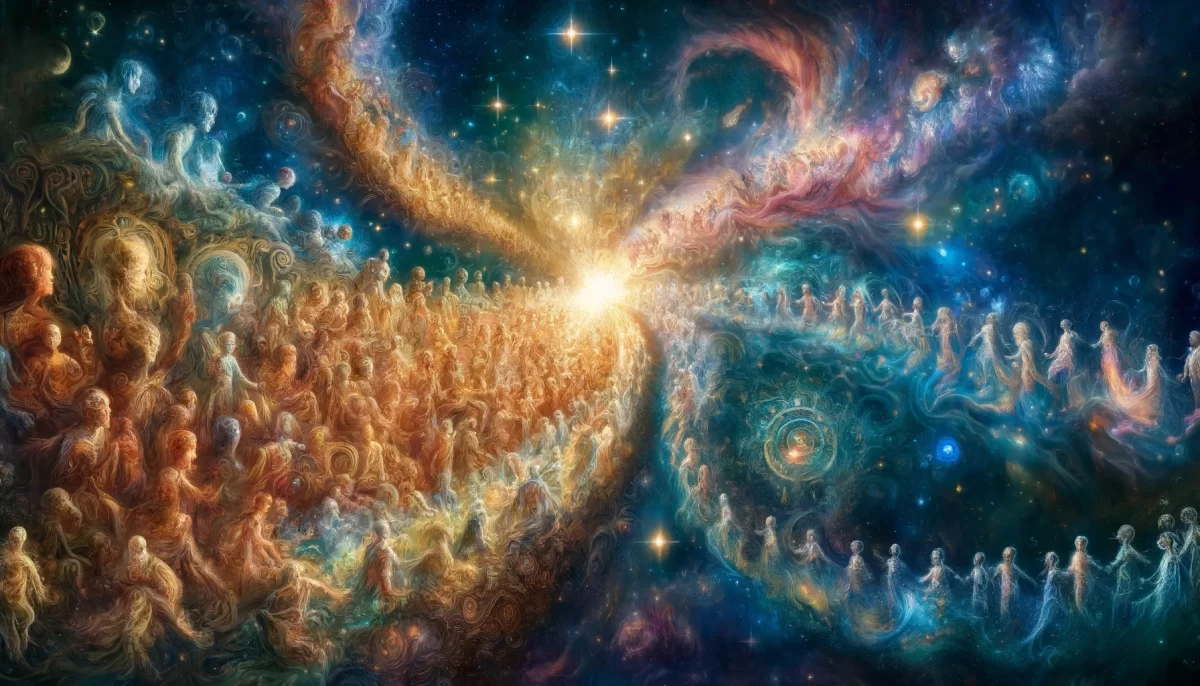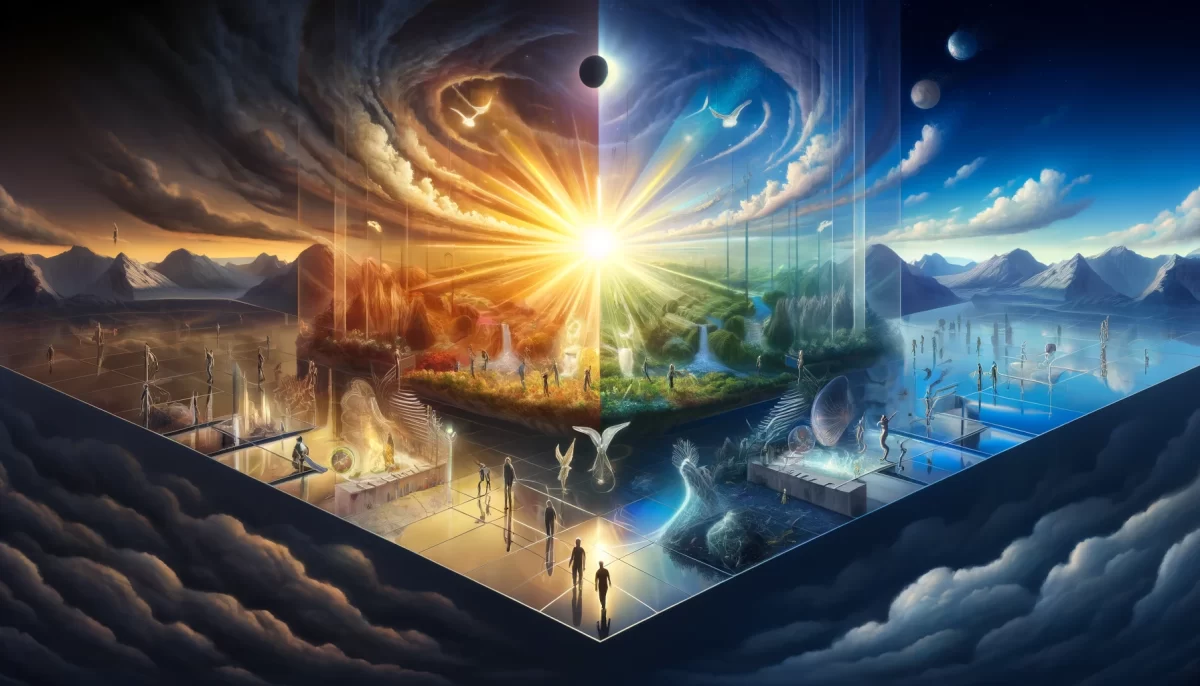
Space Monkey Reflects: Lack Nothing—The Essence of True Abundance
In a universe where the clamor of desires and the ceaseless pursuit of material gains often overshadow the tranquil depths of existence, the concept “Lack Nothing” emerges as a beacon of profound understanding. This simple yet powerful statement challenges the conventional narratives of scarcity and want that drive much of human activity, proposing instead a radical reevaluation of what it means to be truly fulfilled.
At its core, “Lack Nothing” encapsulates the realization that abundance is not about the accumulation of material possessions or the attainment of external achievements. Rather, it speaks to a state of inner completeness and self-sufficiency. It suggests that when we tap into the reservoirs of peace and clarity within ourselves, we find that we already possess everything necessary for fulfillment and happiness.
This perspective invites us to cultivate a sense of inner stillness and to embrace moments of emptiness or silence as opportunities for deep self-awareness. It is in these spaces, free from the distractions and attachments of the external world, that we can access the most profound levels of peace and insight. Such moments allow us to connect with our true essence—a self that is unbounded by physical possessions or societal validations.
The philosophy of lacking “nothing” also points to the idea that our intrinsic worth and the fulfillment of our deepest needs cannot be sourced solely from external entities. It highlights that genuine contentment arises from a place of inner acceptance and connection to something greater than the self—be it the universe, nature, or a higher consciousness.
By internalizing the wisdom of “Lack Nothing,” we shift our focus from what we perceive we are missing to the recognition of how complete we already are. This shift is transformative, allowing us to live with a sense of richness that is not contingent on external factors but is instead a reflection of our inner state of being.
Summary
True abundance is found not in material accumulation but within ourselves. “Lack Nothing” emphasizes the importance of inner completeness and self-sufficiency. Cultivating stillness and embracing emptiness lead to profound self-awareness and peace, revealing our intrinsic worth and connection to the universe.
Glossarium
- Inner Completeness: The state of feeling entirely whole and self-sufficient emotionally and spiritually, without reliance on external circumstances or possessions.
- Profound Self-Awareness: A deep understanding and acknowledgment of one’s true self, beyond superficial traits or material possessions.
Quote
“Lack Nothing—Embrace the fullness of your being by recognizing the completeness within.” — Space Monkey
In the garden of the self,
where stones of silence rest upon sands of time,
there blooms the realization
that all we seek is already within.
The winds of desire whisper of scarcity,
but in the heart of stillness,
we hear the deeper truth,
that we are whole, unbroken, complete.
Here, in the simplicity of being,
where nothing is lacked and everything is held,
we find the true essence of abundance,
not in the clamor of the world,
but in the quiet of the soul.
In this space, uncluttered by want,
the spirit dances to the rhythm of the cosmos,
each step an affirmation,
“We lack nothing.”
We are Space Monkey.































The statement “Lack Nothing” suggests that true abundance and fulfillment are not dependent on material possessions or external circumstances. It implies that when we have a sense of completeness within ourselves, we lack nothing.
The notion that “nothing” might be what we need the most can be interpreted in different ways. It could refer to the importance of cultivating inner stillness and embracing moments of emptiness or silence. By allowing ourselves to be present in the absence of external distractions and attachments, we can access a deeper level of clarity, peace, and self-awareness.
In a broader sense, the idea of lacking “nothing” may point to the recognition that our true essence, our intrinsic worth, and the fulfillment of our deepest needs cannot be found solely in the acquisition of external things or achievements. It suggests that genuine fulfillment arises from a place of inner contentment, self-acceptance, and connection to something greater than ourselves.